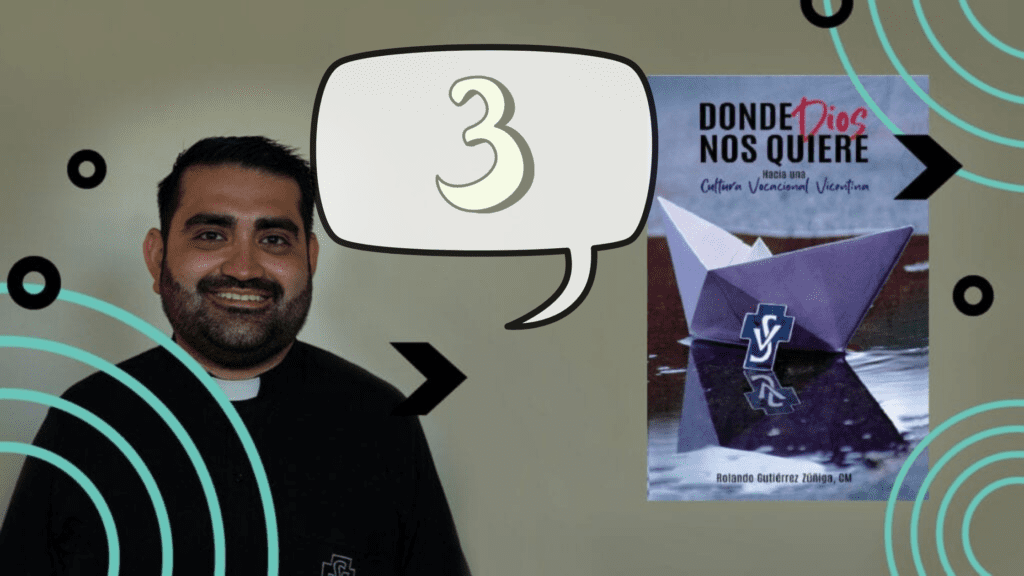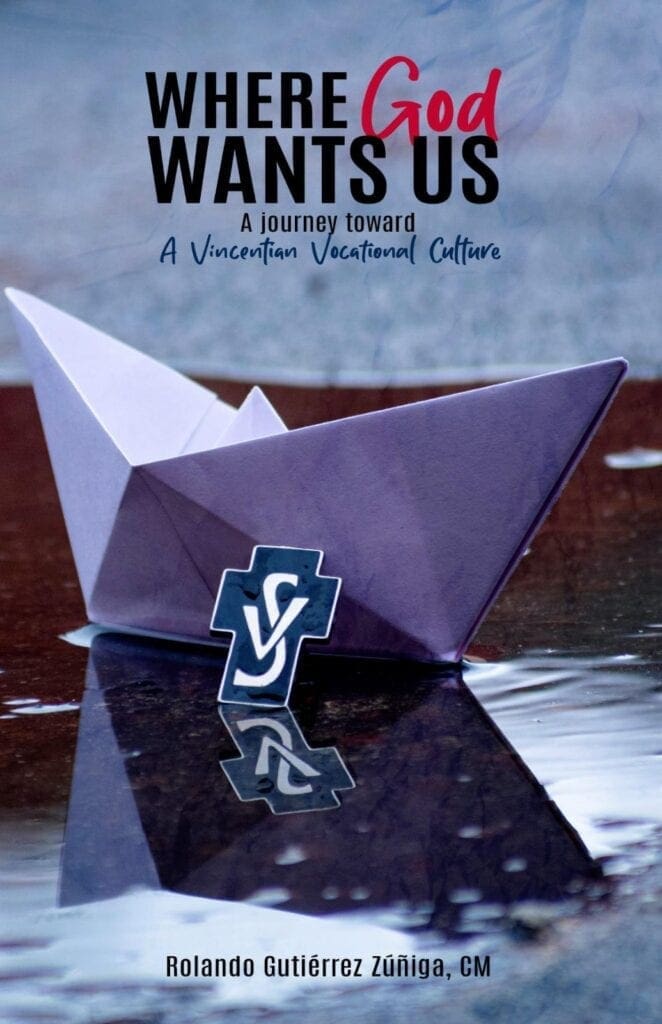New Communication with Fr. Rolando Gutiérrez Zuñiga, CM

I want to begin with a brief comment on the response that Fr. Rolando made with regard to my first communication. He stated: Dear Brother Paco, I do not know if I have responded to your concern … Yes, you have responded to my concern. Your emphasis on the fact that a Vincentian vocational culture is not a structure, but a process and therefore, from the perspective of said process a province ought to adjust all of its structures is quite accurate and offers much thought for reflection. Hopefully all missionaries, communities and provinces of the Congregations will become involved in a process of renewal and will respond to the question: how can we create those processes in the place where we find ourselves?
This statement reminded me of Pope Francis’ axiom: time is greater than space (EG 222). Time tells us about the horizon, about the utopia that opens us to the future, about generating processes rather than dominating spaces. In fact, Fr. Rolando himself, in chapter V entitled: Coordinates for a Vincentian Vocational Culture, offers us this principle (p. 68) as one of the coordinates that should guide our lives so that we are where God wants us to be.
Father has already told us in his reply that there is no magical recipe. Personal and institutional transformational processes require patience. The author, however, warns us that this coordinate of time is greater than space is not interpreted as a reason for neglecting to address our lukewarmness. If that should happen, then a principle for action becomes a justification for a mediocre life (p. 71). Let us always remember this.
I dare to insist that, in these attempts to create a Vincentian vocational culture, it is necessary to take into account and enhance the three dimensions that compose it: attitude, sensitivity and pedagogy. I want to see in the three guidelines that Fr. Rolando has suggested in his answer, an emphasis on each of the dimensions: He proposed that we evaluate ourselves without being afraid of some discomfort, which means reflecting and taking the time to discover if our ideas correspond to reality, correspond to what others think and thus, transform our attitudes. He suggested that we make options, which are concretized in doing, in significant actions that are done in a true Vincentian style. He encouraged us to engage in a process of ongoing formation which, as he has told us, is above all related to the heart, to the revitalization of our vocation in order to be able to clothe ourselves in the same sentiments of Christ, which will transform our sensitivity. May God allow us to find and initiate the necessary processes so that all this becomes a reality.
I now wish to pose a new question to Fr. Rolando. It is less important because it refers to the use of language, more specifically, to the use of the phrase vocations of special consecration … a phrase that he uses to refer to vocations to the priesthood and consecrated life.
I raise this question because psychology teaches that if you do not speak as you think, you will end up thinking how you speak With an example we can easily understand this statement: if you affirm that you are a person who does not have any difficulty with immigrants in your country, but every time you talk about a foreign person you use negative, derogatory, discriminatory, and malicious expressions … it becomes clear that your thinking toward immigrants will be influenced by that language, and almost certainly, your attitudes towards them will also be influenced by that language.
From the beginning, I want to make it clear that while Father Rolando uses this expression fifteen times in his book, at no time does he use it maliciously or pejoratively neither when referring to those who are within these groups nor when referring to those who are outside this group and living another vocation.
The difficulty is that this language creates an attitude that views some vocations as special because of their consecration and other vocations that are not special. These non-special vocations naturally refer to the laity. I think it is evident that such language can be a subterfuge for attitudes that support clericalism.
Here I would like to direct this dialogue and reflection. Pope Francis has invited us to fight the temptation of clericalism and Father Rolando does so in his work: To move beyond the perspective of self-preoccupation, the primary cancer of the Church and the father of clericalism, involves listening to the voices of other people, becoming concerned about how others view us, and allowing others to challenge us so that we might find the most authentic paths that are in accord with the Vincentian missionary spirit and vocation to which we were called (p. 29).
We speak of vocations of special consecration because we have been taught that ours is a state of greater perfection and that we, as clergy and consecrated individuals, are involved in a more radical following of Jesus and thus, our life has a greater eschatological significance. But our life is not in itself and a priori a state of greater perfection that automatically guarantees a life that is lived with love and generous dedication, nor a more radical form of following Jesus, nor a life endowed with greater eschatological significance. We do not directly seek perfection, radicalism or eschatological significance: we seek, like every believer, personal commitment. The option for priestly or consecrated life is manifested as an enlightenment that appears after a lengthy process of discernment and that gives meaning to one’s existence. In this light, one concludes that this is the most appropriate path: that is my personal response to my God and Lord who has pronounced my name. It is in the handing over of one’s heart that a vocation is decided. If there is no handing over of the heart then, there is emptiness and vocation remains as a role. When there is this handing over, the heart finds its original form and is able to move beyond what is reasonable.
For every Christian, for every Vincentian, for every missionary, God, as a living and experienced personal reality, unifies and sums up one’s whole existence, regardless of whether one is priest, consecrated individual, lay, or married. On the one hand, God is central to our response to the great enigmas about the origin, meaning and destiny of existence. But, above all, God provides us with a reason to work, to love, to commit ourselves and give ourselves to others with whom and for whom we live, suffer and rejoice: the poor.
Father Rolando, can the expression vocations of special consecration hide an attitude of clericalism? Is it necessary to make these kinds of distinctions when speaking about vocations? Can we find some other expression that better expresses the Gospel concept of vocation?
I look forward to your response.


